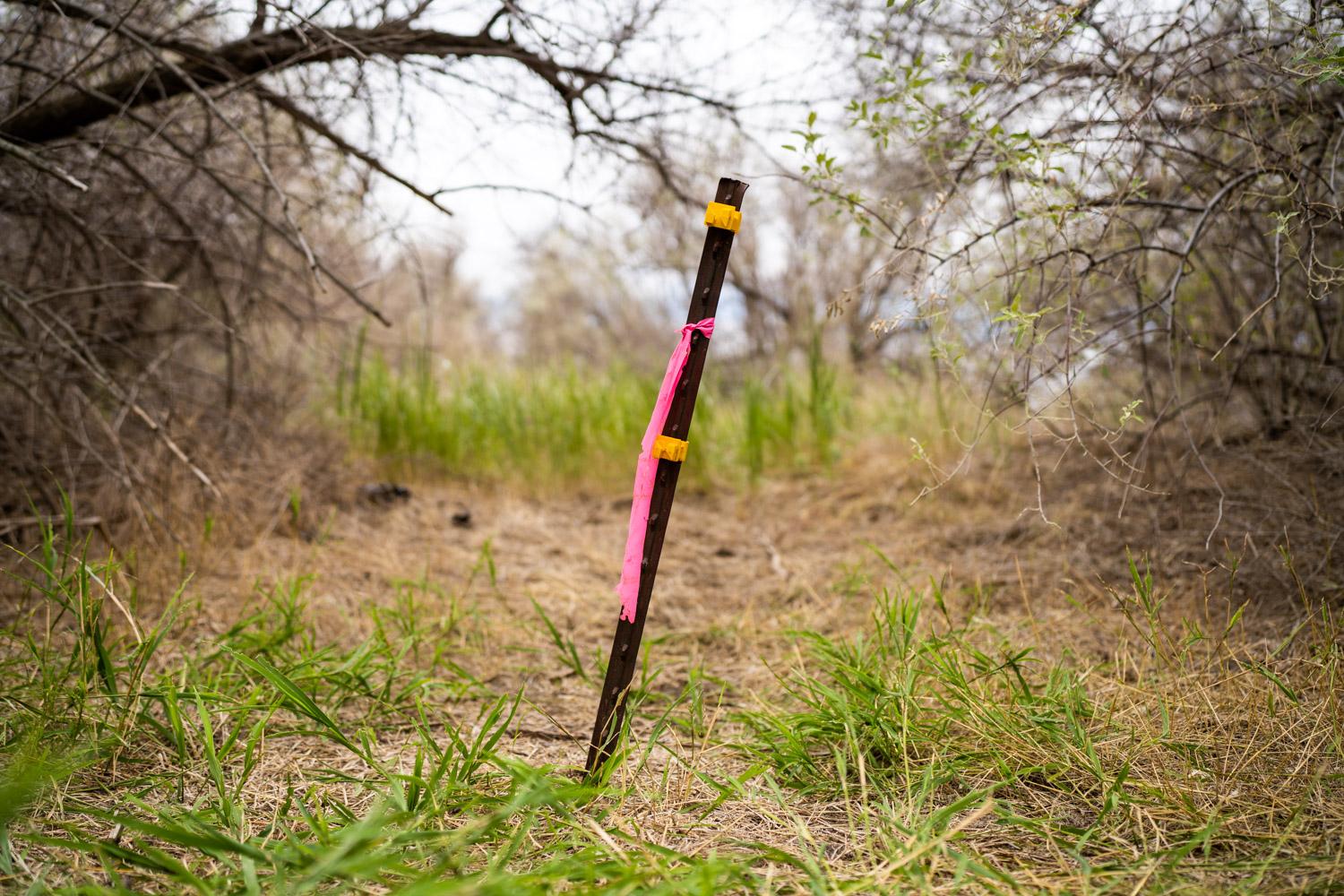
The land Sally Leinen grew up on stretches over the rolling grasslands of the Kansas-Colorado border. In the 1960s, she would ride her horse across the Arikaree River, which was filled with water and ran east. But, as the years passed, the river became drier. Today, it is usually empty, except when a flash flood rages through. Leinen still lives on these plains and considers the area special.
However, it was only recently that Leinen learned the land was even more special than she knew.
While Colorado is most often celebrated for its breathless heights, part of the Arikaree River is the lowest elevation in the state, at 3,315 feet.
I wanted to see the Yuma County spot, but I learned it was private pastureland owned by Leinen and her family. So, I called her and discovered that she was unaware her riparian property was Colorado’s least-altitudinous. “We learned this together?” I asked. “Yes,” she laughed.
She said I could come visit.
But I didn’t want to stand on this ground and merely snap a selfie, I wanted to know the geologic forces behind its lowness and the history of the people who have dwelled there.
And, in a moment of inspiration (or, folly), I decided to invite a bass singer to intone his lowest note in Colorado’s lowest spot.
So, in the early morning of a day in mid-August, Matt Bauer, of the Rocky Mountain Association of Geologists and the Colorado School of Mines, and Forest Kelly, a singer with Face Vocal Band, piled into a car with me. Sam Bock, public historian at History Colorado, was unable to join in person, but agreed to take our call once we arrived on Leinen’s property. We pointed the car northeast from Denver.
Leinen told us to meet her just outside Haigler, Nebraska. We’d then dip into Kansas and cross over into Colorado. “I will be in an old blue Chevy pickup and can lead you out here,” she wrote to me in an email prior to the visit.
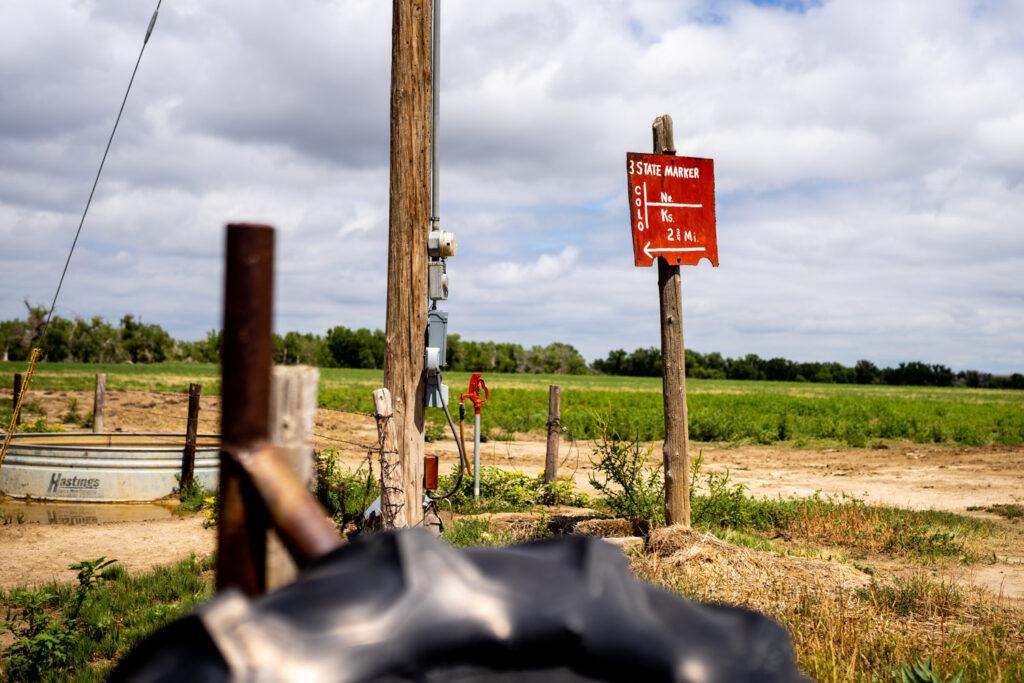
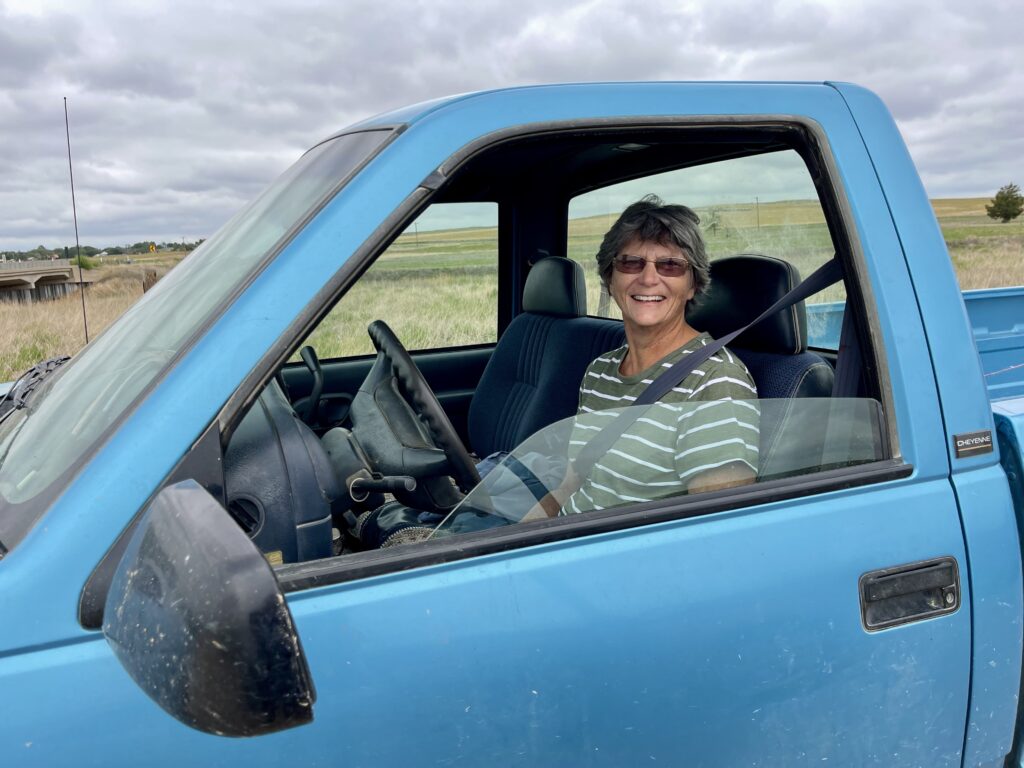
And, just as she said, Leinen was waiting in a sky blue pickup and had us follow her down a series of dirt roads to a two-track, and finally through a field of sagebrush. “It’s right down there in those trees,” she said, pointing to cottonwoods and Russian olive trees that line the once-formidable Arikaree River.
Not long after we spilled out of the car, Bauer spotted a hole in the riverbed where an eddy might have once swirled. This was Colorado’s lowest point. “It’s actually the highest low spot in all of the 50 states,” he said. “Our lowest point is higher than the highest point in 18 states and the District of Columbia.”
He pulled an enormous atlas out of the car, “We are situated on the eastern flank of what’s called the Denver-Julesburg Basin,” he said. “Then there’s the Hartville Uplift, which is up in Wyoming, and the Las Animas Arch, which is down to our south.” Together, they squeeze to create this lowest point.
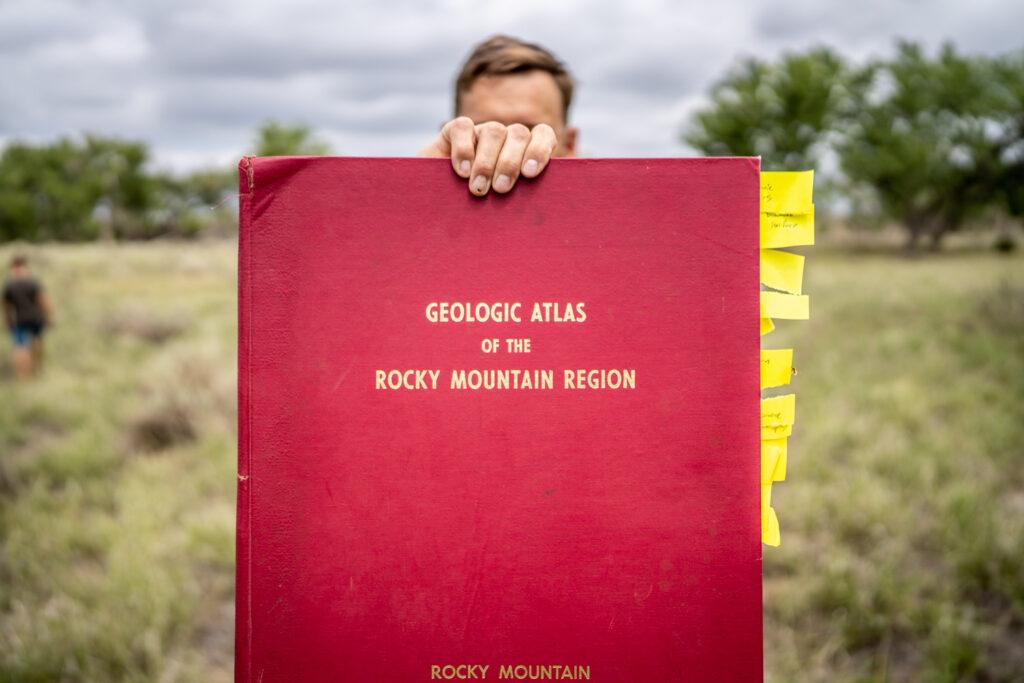
Matt Bauer holds up his copy of the "Geologic Atlas of the Rocky Mountain Region." 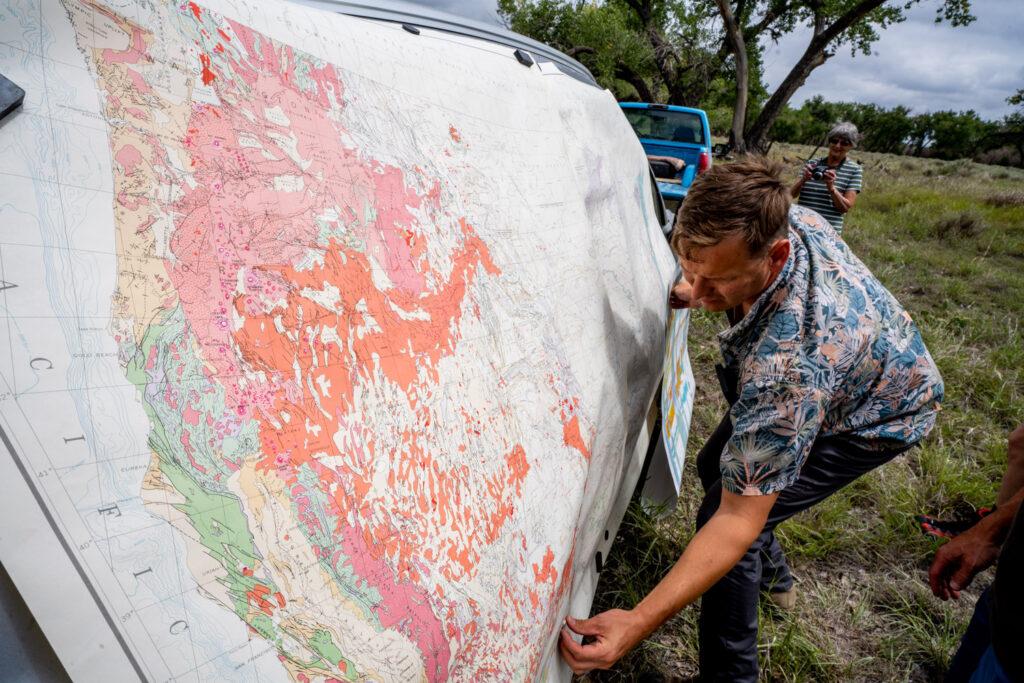
Magnets attach a geologic map of the United States to a car near the lowest point in Colorado.
Leinen explained that many of the trees around us came in after a flood devastated the area in 1935. “It was a doozy,” she said. There were “lots of lives lost and [it] completely washed away farms and everything.”
The lives and livelihoods of farmers were not the first to be connected to the river, said Bock, the historian we reached by phone. The Arikaree River, he explained, is named for the Arikara people. They were forced off this land, and are now one of the Three Affiliated Tribes, also known as The Mandan, Hidatsa and Arikara Nation.
“The lowest point in Colorado is actually the site of some of the lowest moments in our history,” Bock said. “And what I’m talking about is the wars between the Plains tribes and the U.S. government, following The Sand Creek Massacre of 1864.”
Bock called the massacre “the ultimate betrayal”: When it became clear to the tribes that the United States was not negotiating in good faith and would use force to remove Indigenous people from their homelands. Today, the Three Affiliated Tribes are in North Dakota.
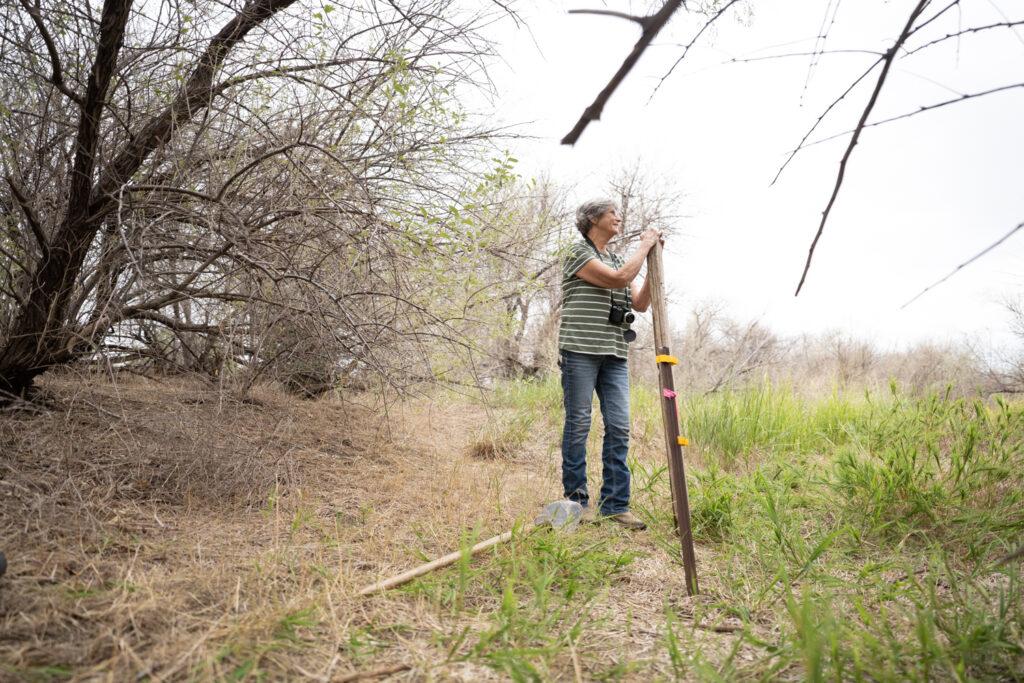
As Bock and Bauer, the geoscientist, shared their knowledge of the land’s history, Sally Leinen stood listening nearby. “I’m amazed people have taken such interest in my land,” she said.
Leinen carted a fence post with her and began hammering it into the ground. It was tied with a pink ribbon to mark the lowest spot.
While the rhythmic clangs died down, Kelly, the bass singer, launched into “Rocky Mountain High” by John Denver.
Later, as the high-noon sun began to bake the ground, we retreated to our car and Leinen got in her truck. We traversed the dirt roads back to the highway, the unassuming fence post and Colorado's lowest point shrinking in our review mirrors.









